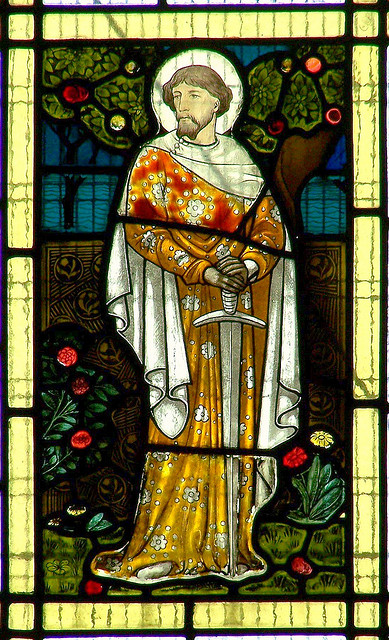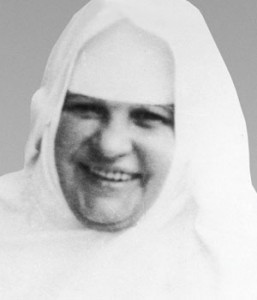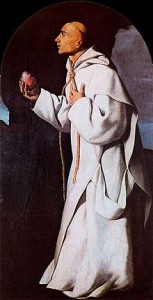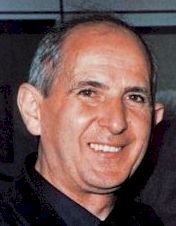Saint Martin of Tours is patron saint of soldiers. He was a conscientious objector and the first unmartyred saint of the Catholic Church. In addition to his sudden proclamation, during war, that he was a soldier of Christ and therefore could not fight, he is known for, upon spotting a beggar, using his sword to cut his cloak in half and giving one half to the beggar. In a dream, Jesus appeared to him wearing the half of the cloak that he had given away.
The following is an excerpt from Nonviolence: The History of a Dangerous Idea, by Mark Kurlansky, who has a somewhat cynical take on veneration of this saint:
“Some Christians continued to refuse military service. In 336 another son of a soldier suddenly put down his arms before a battle and refused to fight. The young man, Martin, had served in the military for two years after his conversion to Christianity. One day Martin said, ‘I am a soldier of Christ. I cannot fight.’ He was accused of cowardice, to which he responded by offering to go unarmed in front of the troops onto the battlefield. The emperor decided a fitting end to Martin would be take him up on his offer, but before this could happen peace was negotiated with the Gauls. The battle never took place, leaving Martin to die a natural death sixty-one years later at the age of eighty-one.
But others refused service, too, including Martin’s friend Victricius. The Church addressed this Christian urge toward conscientious objection later in the century, declaring that a Christian who had shed blood was not eligible for communion for three years. Thus did the Church acknowledge an objection to warfare, but not an insurmountable one. Then in the fifth century an Algerian biship, Augustine of Hippo, wrote the enduring apologia for murder on the battlefield, the concept of ‘just war.’ Augustine, considered one of the fathers of the Catholic Church, declared that the validity of war was a question of inner motive. If a pious man believed in a just cause and truly loved his enemies, it was permissible to go war and to kill the enemies he loved because he was doing it in a high-minded way…
Martin, who refused to go into battle against the Gauls, is now Saint Martin of Tours. Martin did not really qualify for sainthood, since, according to the original rules of the Catholic Church, one of the requirements was martyrdom. Martin would have been a fine saint if it weren’t for the last-minute peace with the Gauls. He would have marched unarmed across the field, been cut down and chopped up for sainthood. The later Church, not the one Martin knew, needed martyrs, because extolling martyrdom is a way of promoting warfare – the glory of being slaughtered. Needing Martin safely as a saint on their side and not as an unclaimed rebel conscientious objector, the Church turned Martin of Tours into the first unmartryed saint.
Saint Martin has become a kind of military figure, usually portrayed in armor. The U.S. Army Quartermasters Corps awards a medal named after him, ‘The military order of Saint Martin. Saint Martin is supposed to have died on November 11, 387. Historians say that the day is uncertain, but the date has taken on absolute certainty as the Feast of Saint Martin, because it coincides with the date of the armistice ending World War I. It is difficult to know what to do with rebels, but saints have a thousand uses.”




